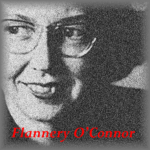Other Presentations by Gil Bailie
Presentations by Gil Bailie made since the mid-1980s through 2018
Being Scene: Gil Bailie & Ron Austin
The Advent of History & the History of Advent
Reflections on The Theology of the Body
Nothing Remains Intact Without Effort
Emancipation from Radical Emancipation
Reflections on Isak Dineson’s Babette’s Feast
Being Scene: The Self and the Sound of Two Hands Clapping
A presentation by Gil Bailie and Ron Austin, Fellows of the Dominican School of Philosophy and Theology in Berkeley, California in 2011
Being Scene Part 1 – Gil Bailie
Being Scene Part 2 – Ron Austin
The Advent of History & The History of Advent
History actually has a history. It was not always the case that humans lived in history. That is what lies behind the idea of ‘pre-historic’ human experience which was purely cyclical and mythic in nature. With the advent of the biblical God’s call to Abram to come out of his ‘pre-historic’ culture the human race begins a journey towards an unknown horizon.
This journey’s path leads to the Advent of an incarnation in Bethlehem, through the dusty roads of Roman Judea where death from crucifixion opens a tomb and ultimately to the parousia and revelation of Jesus Christ as the universal Lord of history.
Advent is the road for those with a journey to make.
Reflections on The Theology of the Body
This is a three part presentation made in 2003 at Casper, Wyoming introducing the participants to Pope St. John Paul II’s Theology of the Body.
In reviewing these recordings, I realized that there is one thing that needs to be made explicit, lest a misunderstanding arise. In following John Paul ll’s bold suggestion that the awakening of our common human vocation occurs at the moment of the “communio personarum” communion of persons, one might get the mistaken impression that we are only inchoately human until such a relational moment occurs. Nothing could be farther from the theology of the body, nor from my efforts to call attention to its depth and contemporary relevance.
To be human is to be a member of the species uniquely called to loving communion – with God and with one another. One becomes a member of that community – the human community – at the moment of conception. Though a morally mature and fully conscious assent to the call to communion comes only much later, even the newest members of the human family respond as they can to that call simply by “choosing life,” and we, on whom they so completely depend, should do likewise.
Gil Bailie
Nothing Remains Intact Without Effort
This is an expanded version of remarks made in 2009 at an event honoring then San Francisco Archbishop George Niederauer and Professor Emeritus René Girard of Stanford University. Gil Bailie proposes the importance of Girard’s work for the Catholic Church in its mission in the 21st century.
Resentment
A public presentation given in Brisbane, Australia in 2003 entitled “The Religious Challenges of the 21st Century”.
2000 Years And No New God
Friedrich Nietzsche’s aphoristic lament in his late work “The Antichrist” that it had been almost “two thousand years and no new god” glimpses an important anthropological effect of the Christian revelation. The word Nietzsche uses to characterize what he loathes most about the cultural effect of Christianity is the word pity. It isn’t pity; it is empathy for victims as victims that the Gospel awakens, and it is that empathy that has had a mounting effect on cultural life during the last “two thousand years”. In this presentation from 2002 Gil Bailie describes in broad overview of effects of the Gospel on cultures exposed to it using the interpretive lens of René Girard’s mimetic theory.
Emancipation from Radical Emancipation
Gil Bailie’s presentation at the 2011 Conference of the Notre Dame Center for Ethics and Culture. The conference theme was “Radical Emancipation – Confronting the Challenge of Secularism“. Mr. Bailie’s talk was the third of the three person contingent from the Dominican School of Philosophy and Theology recorded at the conference and were given under the heading: “Emancipation from Radical Emancipation – the Apprehension of Personal Vocation through Liturgy and the Arts”
Christian Virtues Gone Mad
An expanded version of Gil Bailie’s presentation at the 2009 Colloquium on Violence and Religion conference at St. Mary’s University, London.
Unlike the generation that sacrificed so much to preserve our civilization, many of us have lately come to believe that we can discharge our present responsibilities simply by relaxing the religious, moral, social and cultural traditions that have defined our culture, relieving our children of the burden of having exemplary models to emulate and ennobling standards to which to aspire, and taking special care not to inconvenience newcomers to our societies with any serious need to familiarize themselves with these traditions. This minimalist approach to cultural responsibility is a striking example of what G. K. Chesterton called Christian virtue gone mad. Contrary to its purported intent, it has resulted in a generation or two of people who feel entitled to the blessings Western Civilization is still able to bestow but who no longer identify with that civilization in any really serious way, many of whom, in fact, have been inculcated with a contempt for it.
Reflections on Isak Dineson’s Babette’s Feast
Gil Bailie explores elements of a sacrament as depicted in Isak Dinesen’s Babette’s Feast.
This was part of a series of presentations entitled Crucial Choice . The crucial choices between sacrifice and sacrament are narrated in the short stories of Isak Dinesen’s Babette’s Feast, and Flannery O’Connor’s The Displaced Person.
Introduction to The Truth of Poetry & The Poetry of Truth
As an introduction to the Poetry of Truth / Truth of Poetry series on the Gospel of Luke and Vergil’s Aenid Gil Bailie presented an extended reflection on Mark Twain’s posthumously published essay entitled The United States of Lyncherdom.
Violence Unveiled New Introduction to Audiobook
This is the 2020 audiobook introduction to Gil Bailie’s 1996 Violence Unveiled book published by Crossroads available in print, ebook, and audiobook versions.



